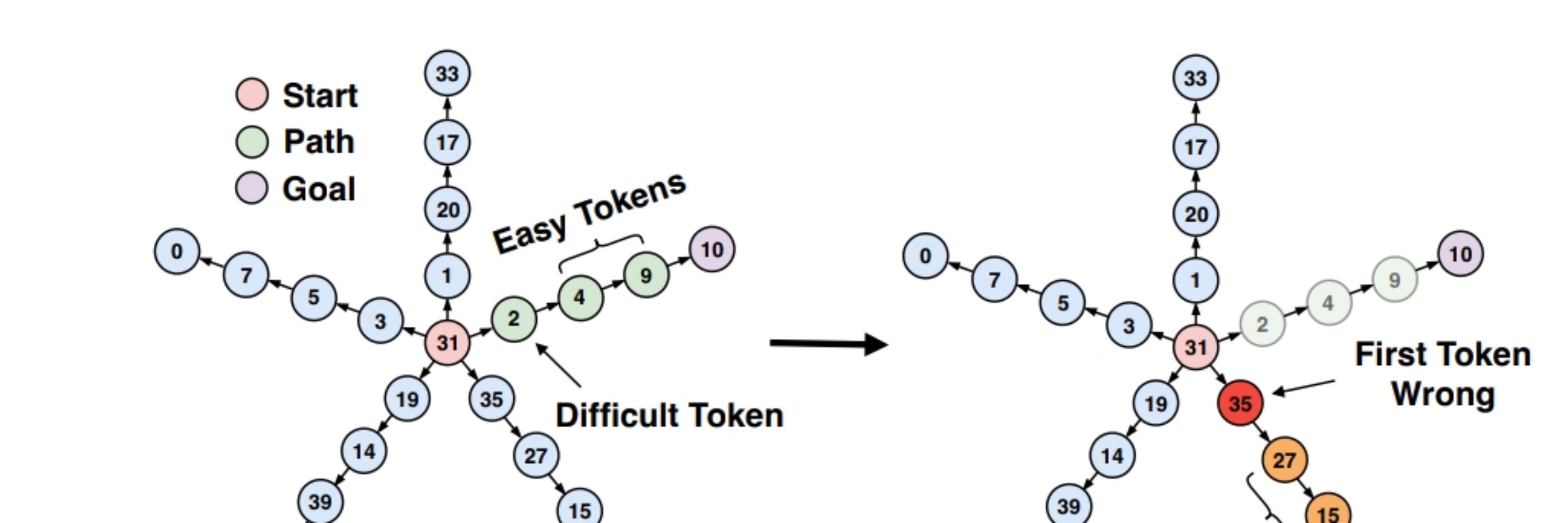
Google Research | PhD, CMU |
https://arxiv.org/abs/2504.15266 | https://arxiv.org/abs/2403.06963
vaishnavh.github.io
Probability
Probability
I think @abeirami.bsky.social may be interested in this rant.
I think @abeirami.bsky.social may be interested in this rant.
- "evaluating someone based on some bottom k papers" or
- "judging negatively for publishing >N papers"
- "evaluating someone based on some bottom k papers" or
- "judging negatively for publishing >N papers"
btw, i just noticed this, this sort of a compliment is actually a great way to incentivize people to be more selective in publishing papers (and to counter all the other forces that discourage me from my rate of ~1 paper a year)
btw, i just noticed this, this sort of a compliment is actually a great way to incentivize people to be more selective in publishing papers (and to counter all the other forces that discourage me from my rate of ~1 paper a year)
This work was with great collaborators at CMU: @chenhenrywu.bsky.social who co-led, Charles Ding & @adtraghunathan.bsky.social! Go follow them to see what else they’re up to! 11/

This work was with great collaborators at CMU: @chenhenrywu.bsky.social who co-led, Charles Ding & @adtraghunathan.bsky.social! Go follow them to see what else they’re up to! 11/
→ generalizing these insights to real cows,
→ studying RL/CoT for creativity,
→ understanding surprising behaviors of seed-conditioning 10/👇🏽
→ generalizing these insights to real cows,
→ studying RL/CoT for creativity,
→ understanding surprising behaviors of seed-conditioning 10/👇🏽
Given the noisy, subjective studies of real cows, we believe an objective study brings
→much-needed clarity of thought (like disentangling the two modes of creativity),
→more ideas,
→better-defined experiments. 9/👇🏽
Given the noisy, subjective studies of real cows, we believe an objective study brings
→much-needed clarity of thought (like disentangling the two modes of creativity),
→more ideas,
→better-defined experiments. 9/👇🏽
but temp sampling has to articulate multiple latent thoughts in parallel to produce a marginal next-word distribution -- this is more burdensome! 8/👇🏽

but temp sampling has to articulate multiple latent thoughts in parallel to produce a marginal next-word distribution -- this is more burdensome! 8/👇🏽
Remarkably, seed-conditioning produces meaningful diversity even w *greedy* decoding 🤑; it is competitive with temp & in some conditions, superior. 7/👇🏽


Remarkably, seed-conditioning produces meaningful diversity even w *greedy* decoding 🤑; it is competitive with temp & in some conditions, superior. 7/👇🏽

